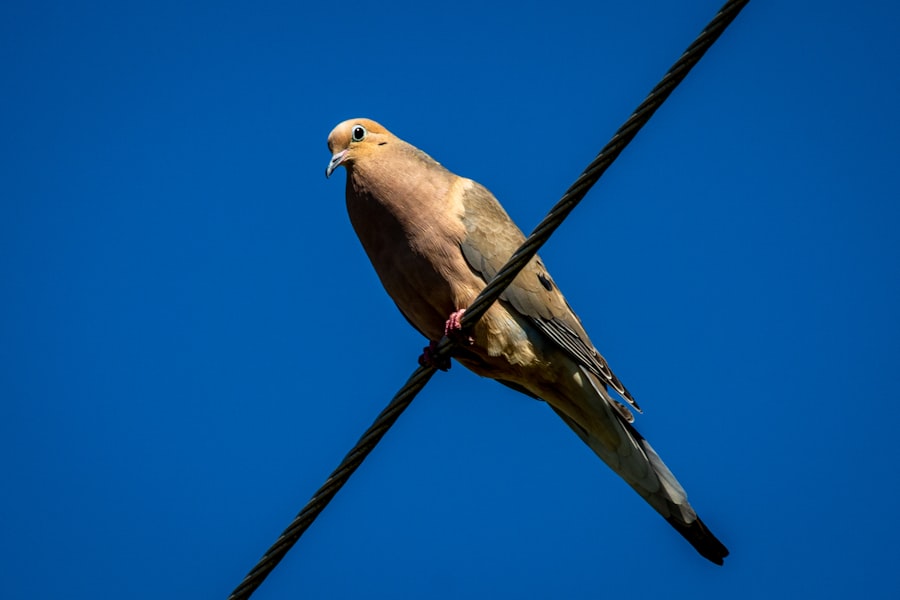When selecting chicken breeds for a backyard flock, several factors should be considered. Climate is a crucial element, as some breeds are better adapted to cold weather, while others thrive in warmer conditions. The intended purpose of the flock is also important; certain breeds are known for high egg production, while others are valued for meat quality.
Temperament is another key consideration, especially for families with children or other pets, as some breeds are more docile and friendly than others. Available space is also a factor, as some breeds are better suited to free-ranging, while others adapt well to confinement. Personal preferences also play a role in breed selection.
Aesthetic considerations such as feather color, pattern, and overall appearance can influence choices. Some individuals may be drawn to heritage breeds with historical significance, while others prefer modern hybrids with enhanced production capabilities. Selecting a breed that aligns with personal interests can enhance the overall experience of raising chickens.
By carefully evaluating these factors, backyard flock owners can choose chicken breeds that best suit their specific needs, circumstances, and preferences, ultimately leading to a more successful and enjoyable poultry-keeping experience.
Table of Contents
Key Takeaways
- Consider the climate, space, and purpose when choosing the right breed of chickens for your flock
- Build a coop and run that provides enough space, protection from the elements, and security from predators
- Provide a balanced diet, access to clean water, and appropriate supplements for your chickens’ nutrition
- Regularly clean the coop, provide proper ventilation, and monitor for signs of illness to maintain a healthy living environment
- Install predator-proof fencing, secure locks, and motion-activated lights to protect your chickens from predators
- Monitor your chickens for any signs of illness or distress, and provide opportunities for socialization and enrichment to ensure their well-being
Building a suitable coop and run
Designing the Coop
Once you’ve chosen the right breed of chickens for your backyard flock, it’s time to think about building a suitable coop for them to live in. The coop is where your chickens will roost at night and lay their eggs, so it’s important to make sure it’s well-constructed and predator-proof. When designing your coop, consider factors such as ventilation, insulation, and ease of cleaning. You’ll also want to provide plenty of roosting space and nesting boxes for your hens to lay their eggs.
Securing the Coop
Additionally, make sure the coop is secure from predators such as raccoons, foxes, and birds of prey. A sturdy door and hardware cloth over windows and vents can help keep your chickens safe from harm.
Providing a Suitable Run
In addition to the coop, it’s important to provide your chickens with a run where they can stretch their legs and scratch around for bugs and plants. The run should be spacious enough to allow your chickens to move freely and exhibit natural behaviors, such as dust bathing and foraging. It’s also important to provide shade and shelter within the run, as well as protection from the elements.
By providing a well-designed coop and run, you can ensure that your chickens have a safe and comfortable living environment where they can thrive.
Providing proper nutrition and water
Proper nutrition is essential for keeping your backyard flock healthy and productive. Chickens require a balanced diet that includes protein, carbohydrates, fats, vitamins, and minerals. A good quality commercial feed formulated specifically for chickens is a great foundation for their diet.
Additionally, offering treats such as fruits, vegetables, and mealworms can provide variety and enrichment for your flock. It’s important to provide access to fresh water at all times, as chickens can quickly become dehydrated, especially in hot weather. Make sure the water is clean and free from contaminants, and consider using a heated waterer in the winter to prevent freezing.
In addition to providing a balanced diet, it’s important to monitor your chickens’ health and adjust their nutrition as needed. For example, if you notice that your hens are laying fewer eggs or have poor feather quality, it may be a sign that they need a change in their diet. Similarly, if you have broody hens or growing chicks, they may have different nutritional needs than your adult laying hens.
By paying attention to your chickens’ behavior and appearance, you can ensure that they are getting the nutrition they need to stay healthy and productive.
Maintaining a clean and healthy living environment
Maintaining a clean and healthy living environment is essential for keeping your backyard flock happy and disease-free. Regularly cleaning the coop and run is important for preventing the buildup of bacteria and parasites that can harm your chickens. Remove soiled bedding from the coop and replace it with fresh bedding on a regular basis.
Additionally, regularly rake and remove waste from the run to prevent the accumulation of droppings. Providing proper ventilation in the coop can also help reduce moisture levels and prevent the growth of harmful pathogens. In addition to regular cleaning, it’s important to monitor your chickens for signs of illness or injury.
By regularly observing your flock, you can quickly identify any issues that may arise and take appropriate action. For example, if you notice a chicken with droopy wings or unusual behavior, it may be a sign that they are unwell. By addressing any health concerns promptly, you can prevent the spread of illness within your flock and ensure that your chickens remain healthy and thriving.
Protecting against predators
Protecting your backyard flock against predators is essential for their safety and well-being. Common predators such as raccoons, foxes, hawks, and snakes can pose a threat to your chickens, so it’s important to take steps to keep them at bay. One effective way to protect your flock is by securing the coop and run with sturdy fencing and hardware cloth.
Make sure there are no gaps or weak spots where predators could gain access. Additionally, consider installing motion-activated lights or sound devices to deter nocturnal predators. Another important aspect of predator protection is providing secure housing for your chickens at night.
Make sure the coop is tightly sealed with no openings that predators could squeeze through. Locking the coop door at night can also help prevent unwanted visitors from gaining access. By being proactive about predator protection, you can ensure that your chickens are safe from harm and can live without fear.
Monitoring for signs of illness and disease

Recognizing Common Signs of Illness
Common signs of illness in chickens include lethargy, decreased appetite, abnormal droppings, respiratory symptoms, and changes in behavior or appearance. By being familiar with your flock’s normal behavior, you can quickly identify any abnormalities that may indicate an underlying health issue.
The Importance of Regular Handling
In addition to visual observation, regular handling of your chickens is essential to check for physical abnormalities such as lumps or injuries. This proactive approach can help catch any issues early on and seek veterinary care if necessary.
Practicing Good Biosecurity
Practicing good biosecurity measures can help reduce the risk of disease transmission within your flock. This includes quarantining new birds and preventing contact with wild birds. By taking these precautions, you can help keep your flock healthy and thriving.
Ensuring proper socialization and enrichment for your backyard flock is important for their mental well-being and overall happiness. Chickens are social animals that thrive on interaction with their flock mates, so it’s important to provide them with plenty of opportunities for socialization. This can include providing ample space in the coop and run for them to move around freely, as well as providing perches and roosts where they can interact with each other.
In addition to socialization, it’s important to provide enrichment activities to keep your chickens mentally stimulated. This can include providing toys such as hanging treats or mirrors, as well as allowing them access to natural elements such as dust bathing areas and foraging opportunities. By providing opportunities for socialization and enrichment, you can ensure that your chickens are happy and content in their environment.
In conclusion, raising backyard chickens can be a rewarding experience that provides fresh eggs, natural pest control, and the joy of caring for these charming creatures. By choosing the right breed of chickens, building a suitable coop and run, providing proper nutrition and water, maintaining a clean and healthy living environment, protecting against predators, monitoring for signs of illness and disease, and ensuring proper socialization and enrichment, you can create a safe and nurturing environment for your flock to thrive. With careful planning and attention to their needs, you can enjoy the many benefits of raising backyard chickens while providing them with a happy and fulfilling life.
If you’re considering keeping 6 chickens, you’ll want to make sure their coop is set up for success. One important aspect to consider is the floor of the chicken coop. Poultry Wizard has a great article on the importance of the coop floor and how to properly maintain it. Check it out here for some helpful tips and advice.
FAQs
What are the benefits of keeping 6 chickens?
Keeping 6 chickens can provide a sustainable source of fresh eggs, natural pest control in the garden, and a source of organic fertilizer for the soil.
What do chickens need to thrive?
Chickens need a secure coop for shelter, access to fresh water, a balanced diet of feed and kitchen scraps, and a safe outdoor area for foraging and exercise.
How much space do 6 chickens need?
Six chickens require a minimum of 10 square feet per bird in the coop and 10 square feet per bird in the outdoor run to ensure they have enough space to move around comfortably.
What should be included in a chicken coop?
A chicken coop should include roosting bars, nesting boxes, proper ventilation, and easy access for cleaning. It should also be predator-proof to keep the chickens safe.
What are some common health issues for chickens?
Common health issues for chickens include mites, lice, respiratory infections, and egg binding. Regular health checks and proper hygiene can help prevent these issues.
What should be included in a chicken’s diet?
A chicken’s diet should include a balanced commercial feed, fresh water, and occasional treats such as fruits, vegetables, and mealworms. Grit should also be provided for digestion.
Meet Walter, the feathered-friend fanatic of Florida! Nestled in the sunshine state, Walter struts through life with his feathered companions, clucking his way to happiness. With a coop that’s fancier than a five-star hotel, he’s the Don Juan of the chicken world. When he’s not teaching his hens to do the cha-cha, you’ll find him in a heated debate with his prized rooster, Sir Clucks-a-Lot. Walter’s poultry passion is no yolk; he’s the sunny-side-up guy you never knew you needed in your flock of friends!







